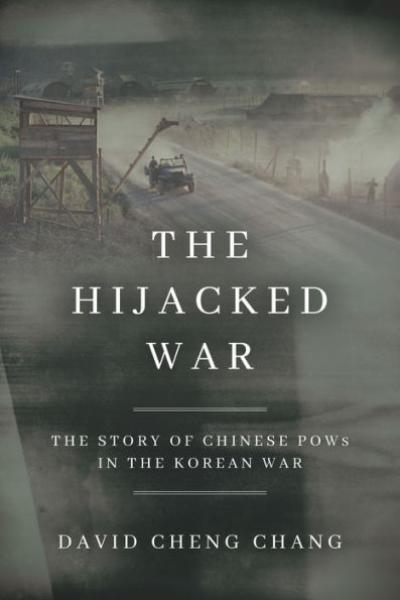Description
The Korean War lasted for three years, one month, and two days, but armistice talks occupied more than two of those years, as more than 14,000 Chinese prisoners of war refused to return to Communist China and demanded to go to Nationalist Taiwan, effectively hijacking the negotiations and thwarting the designs of world leaders at a pivotal moment in Cold War history. In The Hijacked War, David Cheng Chang vividly portrays the experiences of Chinese prisoners in the dark, cold, and damp tents of Koje and Cheju Islands in Korea and how their decisions derailed the high politics being conducted in the corridors of power in Washington, Moscow, and Beijing.
Chang demonstrates how the Truman-Acheson administration's policies of voluntary repatriation and prisoner reindoctrination for psychological warfare purposes--the first overt and the second covert--had unintended consequences. The "success" of the reindoctrination program backfired when anti-Communist Chinese prisoners persuaded and coerced fellow POWs to renounce their homeland. Drawing on newly declassified archival materials from China, Taiwan, and the United States, and interviews with more than 80 surviving Chinese and North Korean prisoners of war, Chang depicts the struggle over prisoner repatriation that dominated the second half of the Korean War, from early 1952 to July 1953, in the prisoners' own words.
Drawing on newly declassified archival materials from China, Taiwan, and the United States and interviews with surviving Chinese and North Korean prisoners of war, Chang depicts the struggle over prisoner repatriation that dominated the second half of the Korean War, from late 1951 to July 1953, in the prisoners' own words.
"David Cheng Chang offers an intriguing alternative explanation for the skewed anti-repatriation decision on the part of Chinese POWs and its impact on the Korean War....Hijacked War is no doubt an excellent contribution to Korean War POW studies. Those interested in the Korean War and POWs will find it very inspiring and worth reading."--Son Daekwon "Pacific Affairs "
"An ambitious China-centric work that nonetheless wonderfully captures the ambiguity and confusion associated with the breakup of the Japanese Empire and the related uncertainty of the two Koreas, The Hijacked War holds interest for a range of fields, reaching out to scholars of Northeast Asia, along with more nation-oriented subdisciplines of East Asian studies."--John P. DiMoia "Cross-Currents "
"Besides being thus far the most in-depth exploration of Chinese POWs, The Hijacked War will be valuable to scholars studying the Korean War frontline and infiltration campaigns....Based on solid scholarship, Chang's POW biographies offer unique perspectives."--Liu Zhaokun "Journal of American-East Asian Relations "
"The Hijacked War provides a most provocative look at the political and ethical consequences of the Korean War. Through the untold story of Chinese POWs' deportation, David Cheng Chang describes how, against the backdrop of the battle between democracy and communism, the Korean War's stakes implicated power games, historical contingencies, and human rights. His meticulous study brings to light a poignant lesson of the war--that freedom may generate violence, and democracy may beget betrayal. The book offers the long-missing piece to the jigsaw of the Cold War narrative on the East Asian front. And importantly, it compels us to ponder the price we pay for the war and peace of our own time."--David Der-wei Wang "author ofThe Monster That Is History: History, Violence, and Fictional Writing in Twentieth-Century China "
"David Cheng Chang's superlative research reveals the use of Chinese POWs as pawns in the larger Cold War standoff between the US and China during the Korean War. His cogent analysis encourages us to think about the aftermath of the war and the lives of those who made the 'voluntary choice' to join or who faced 'forced conformity.'"--Barak Kushner "author of Men to Devils, Devils to Men: Japanese War Crimes and Chinese Justice "
"This book represents a giant step forward in our understanding of the prisoner-of-war issue in the Korean War. The research on the Chinese prisoners is extraordinary, the stories of individuals compelling, and the analysis of the context in which they made choices balanced and persuasive."--William Stueck "author of The Korean War: An International History "
Product Details
- Stanford University Press Brand
- Jan 7, 2020 Pub Date:
- 1503604608 ISBN-10:
- 9781503604605 ISBN-13:
- 496 Pages
- 9.1 in * 6.4 in * 1.7 in Dimensions:
- 2 lb Weight:




